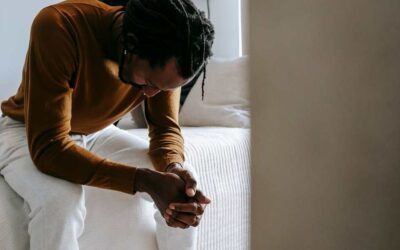Michigan Court of Appeals – People v. Bosworth
Despite these efforts, the jury found the evidence against Bosworth compelling.
In the case of People v. Christopher Mychael Bosworth, the Michigan Court of Appeals rendered a decision on July 18, 2024. Bosworth was convicted by a jury of first-degree murder, assault with intent to commit murder, and two counts of possession of a firearm during the commission of a felony (felony-firearm). These convictions stemmed from a violent incident that occurred in Muskegon County.
Incident Details
The incident leading to Bosworth’s convictions occurred in late 2022. Bosworth was accused of fatally shooting one individual and attempting to kill another. The circumstances of the crime involved a dispute that escalated, resulting in the use of a firearm. The prosecution presented evidence that Bosworth acted with premeditation and intent, elements crucial for the first-degree murder charge under Michigan law (MCL 750.316(1)(a)).
Trial and Evidence
During the trial, the prosecution’s case was built on eyewitness testimonies, forensic evidence, and Bosworth’s own statements. The defense argued that Bosworth did not have the requisite intent for first-degree murder and sought to undermine the reliability of the eyewitness accounts. Despite these efforts, the jury found the evidence against Bosworth compelling.
Appeal Grounds
On appeal, Bosworth raised several issues, including challenges to the sufficiency of the evidence, procedural errors during the trial, and the effectiveness of his trial counsel. He contended that the evidence presented did not support a finding of premeditation and intent necessary for a first-degree murder conviction. Additionally, Bosworth argued that the trial court made errors in admitting certain pieces of evidence and that his attorney failed to provide an adequate defense.
Court of Appeals Decision
The Michigan Court of Appeals reviewed the case and upheld Bosworth’s convictions. The court found that the evidence, when viewed in the light most favorable to the prosecution, was sufficient to support the jury’s verdict. The court noted that the testimonies and forensic evidence presented at trial were adequate to establish Bosworth’s guilt beyond a reasonable doubt.
Regarding the procedural errors claimed by Bosworth, the Court of Appeals determined that any errors made during the trial were harmless and did not affect the overall fairness of the proceedings. The court also dismissed Bosworth’s claims of ineffective assistance of counsel, concluding that his attorney’s performance did not fall below an objective standard of reasonableness and that there was no reasonable probability that the outcome would have been different absent the alleged deficiencies.
Conclusion
The decision in People v. Bosworth reaffirms the standards for evaluating sufficiency of evidence and handling claims of trial errors and ineffective counsel on appeal. The case illustrates the rigorous scrutiny applied by appellate courts to ensure that convictions are supported by substantial evidence and that defendants receive a fair trial.
Read the opinion here:
Legal Counsel and Your Rights
When facing legal challenges, particularly in criminal cases, it is advisable to seek legal counsel immediately.
An experienced attorney can provide guidance on how to navigate interactions with law enforcement while safeguarding your constitutional rights.
Since 1993 our expert legal defense in navigating criminal law matters and protecting your constitutional rights are what we eat for breakfast everyday.
Contact Komorn Law PLLC if you’re ready to fight and win.
Research us and then call us.
More Rights You Should Know
No Results Found
The page you requested could not be found. Try refining your search, or use the navigation above to locate the post.

Supreme Court Opinion – Created federal agencies need judicial oversight
Summary of the Opinion in Loper Bright Enterprises v. RaimondoIn Loper Bright Enterprises v. Raimondo, the Supreme Court addressed the enduring precedent set by Chevron U.S.A., Inc. v. Natural Resources Defense Council, Inc., which has shaped administrative law for...
Other Articles
Probable Cause v Reasonable Suspicion
What's the difference between probable cause and reasonable suspicion?Definition of Probable Cause Probable cause refers to the belief held by a reasonable person that a crime is currently being committed, has already been committed, or is likely to be committed in...
False accusations of Criminal Sexual Conduct (CSC) in Michigan
False accusations of Criminal Sexual Conduct (CSC) are a serious.False accusations of Criminal Sexual Conduct (CSC) are a serious issue and can have devastating consequences for the accused. While it’s important to recognize that sexual assault is a significant...
Criminal Sexual Conduct (CSC) Consent in Michigan
Criminal Sexual Conduct (CSC) Consent in Michigan: Definitions, Penalties, and Legal References.Criminal Sexual Conduct (CSC) consent refers to the voluntary, informed, and freely given agreement by an individual to engage in sexual activity. Consent plays a critical...
Criminal Sexual Conduct (CSC) Fourth Degree
Criminal Sexual Conduct (CSC) in Michigan: Fourth DegreeCriminal Sexual Conduct (CSC) is a set of laws in Michigan that define and penalize various forms of sexual offenses. These laws are categorized into four degrees, with each degree reflecting the severity of the...
Criminal Sexual Conduct (CSC) Third Degree
Criminal Sexual Conduct (CSC) in Michigan Third DegreeCriminal Sexual Conduct (CSC) is a set of laws in Michigan that define and penalize various forms of sexual offenses. These laws are categorized into four degrees, with each degree reflecting the severity of the...
Criminal Sexual Conduct (CSC) Second Degree
Criminal Sexual Conduct (CSC) in Michigan: Definitions, Penalties, and Legal References.Criminal Sexual Conduct (CSC) is a set of laws in Michigan that define and penalize various forms of sexual offenses. These laws are categorized into four degrees, with each degree...
Criminal Sexual Conduct (CSC) First Degree
Criminal Sexual Conduct (CSC) in Michigan: First DegreeCriminal Sexual Conduct (CSC) is a set of laws in Michigan that define and penalize various forms of sexual offenses. These laws are categorized into four degrees, with each degree reflecting the severity of the...
Criminal Sexual Conduct (CSC) – Michigan
Criminal Sexual Conduct (CSC) in Michigan: Definitions, Penalties, and Legal References.Criminal Sexual Conduct (CSC) is a set of laws in Michigan that define and penalize various forms of sexual offenses. These laws are categorized into four degrees, with each degree...















